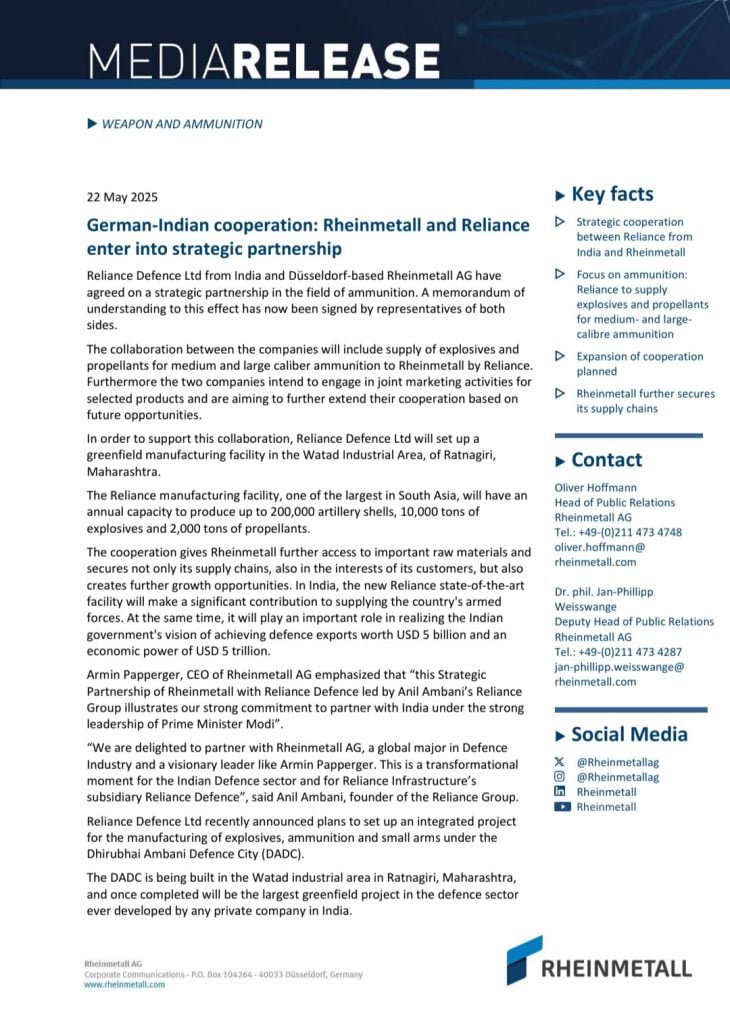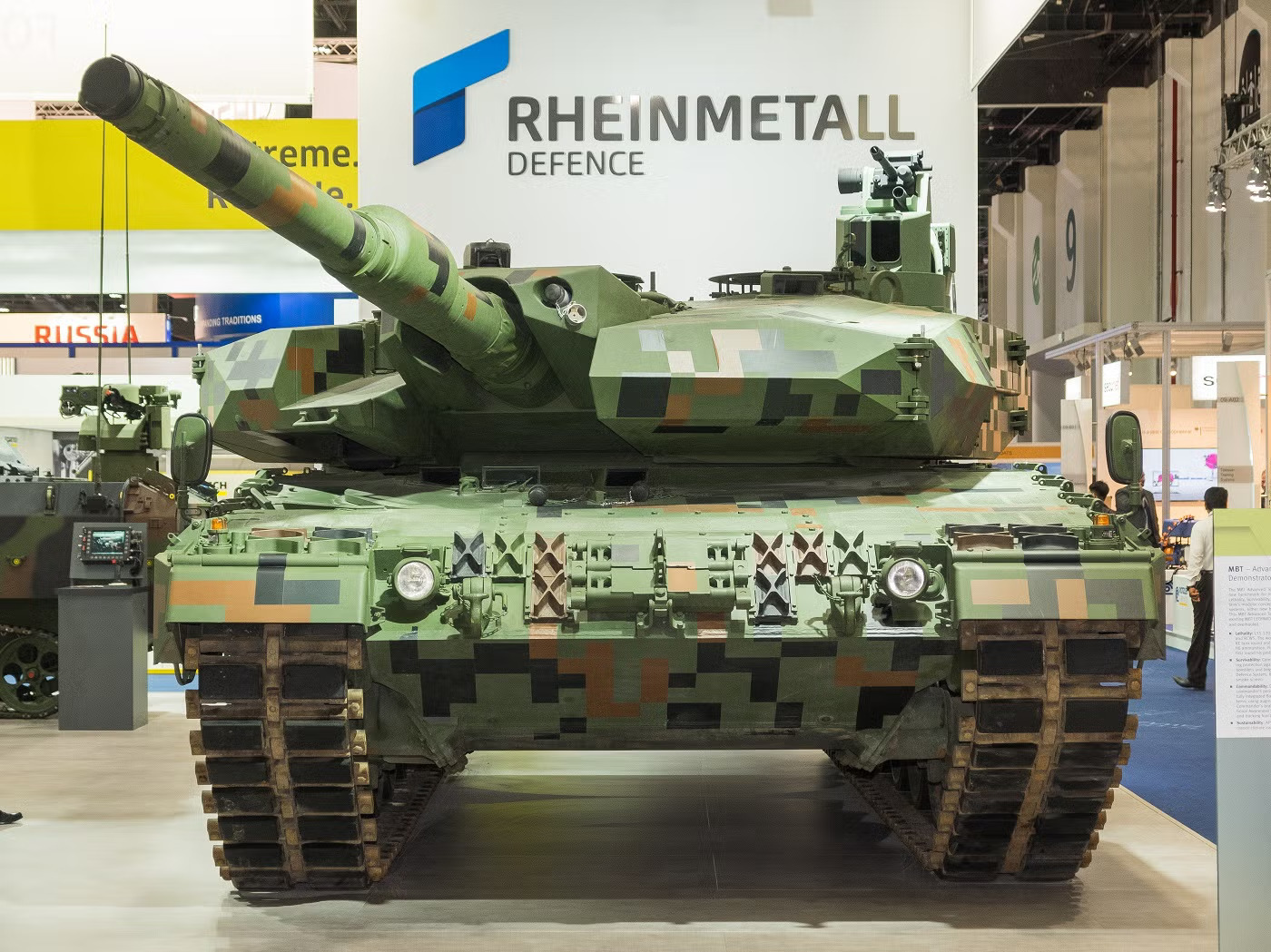In a major stride for India’s defense manufacturing ambitions, Reliance Defence Ltd, a subsidiary of Reliance Infrastructure, has announced a strategic partnership with Germany’s Rheinmetall AG for the domestic production and global supply of ammunition. The agreement, formalized through a memorandum of understanding signed today, marks a crucial step under India’s “Make in India” and defense self-reliance initiatives.
As part of the collaboration, Reliance Defence will supply explosives and propellants for both medium- and large-caliber ammunition to Rheinmetall. The two companies also intend to jointly market selected products and explore further avenues of cooperation. To support this initiative, a greenfield manufacturing facility will be established in the Watad Industrial Area of Ratnagiri, Maharashtra. The facility, expected to be one of South Asia’s largest, will have the capacity to produce 200,000 artillery shells, 10,000 tons of explosives, and 2,000 tons of propellants annually.
Mukesh Ambani, Chairman of Reliance Group, hailed the partnership as a “transformational moment” for India’s defense sector and Reliance Infrastructure. He stated that the initiative aligns with the Indian government’s goal of reaching $5 billion in defense exports and achieving a $5 trillion economic output. The upcoming Ratnagiri facility will supply both domestic armed forces and international clients, aiming to make India a formidable player in the global defense market.
Armin Papperger, CEO of Rheinmetall AG, reinforced the company’s long-term commitment to India, describing the partnership as a reflection of trust in Prime Minister Narendra Modi’s leadership and India’s rapidly evolving defense industry.

The announcement arrives as India intensifies efforts to scale up its defense production capabilities. According to the Ministry of Defence, the country recorded its highest-ever defense exports of ₹21,083 crore in FY 2023–24, marking a 32.5% increase over the previous year. The government aims to achieve domestic defense manufacturing worth ₹3 lakh crore (around $35 billion) between 2025 and 2026.
However, the collaboration is not without controversy. Rheinmetall remains on a blacklist issued by India’s Ministry of Defence in 2012 over bribery allegations, although criminal charges were dismissed in 2017 due to insufficient evidence presented by the Central Bureau of Investigation. The blacklisting, which the company has challenged in Delhi High Court since 2012, has yet to be formally lifted, casting uncertainty over Rheinmetall’s operational legitimacy in India.
This development also highlights India’s nuanced position in global geopolitics. With ongoing conflicts such as the Russia-Ukraine war, the facility’s potential to supply ammunition to European markets could be seen as an indirect alignment with Ukraine’s defense needs, possibly complicating India’s long-standing strategic relationship with Russia. India has so far maintained a policy of strategic autonomy, with Prime Minister Modi recently offering to mediate between the warring nations.
The new Ratnagiri facility is part of a larger vision by Reliance Defence, which recently unveiled plans for the Dhirubhai Ambani Defence City (DADC)—a sprawling, integrated complex aimed at manufacturing a wide range of defense materials, from small arms to advanced explosives. The project is expected to generate employment and economic activity in Maharashtra, while reinforcing India’s push toward defense indigenization.
As India pursues defense modernization and a larger share of the global arms market, the Reliance-Rheinmetall partnership could be a game-changer. Yet, its long-term impact will hinge on resolving regulatory hurdles and balancing delicate geopolitical relationships.













